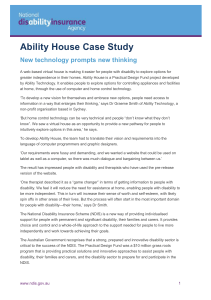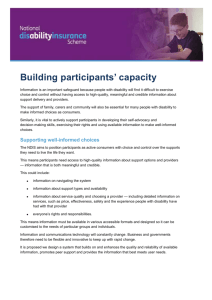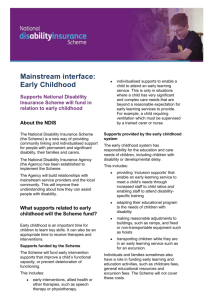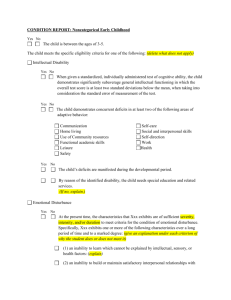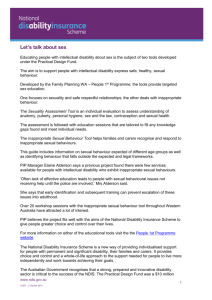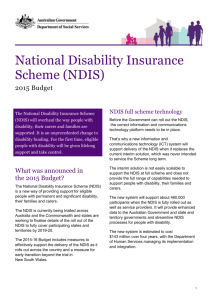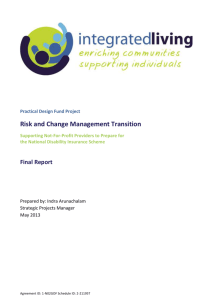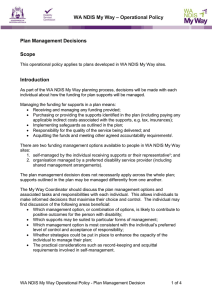Fact sheet `Access to Early Intervention for Children with Autism
advertisement
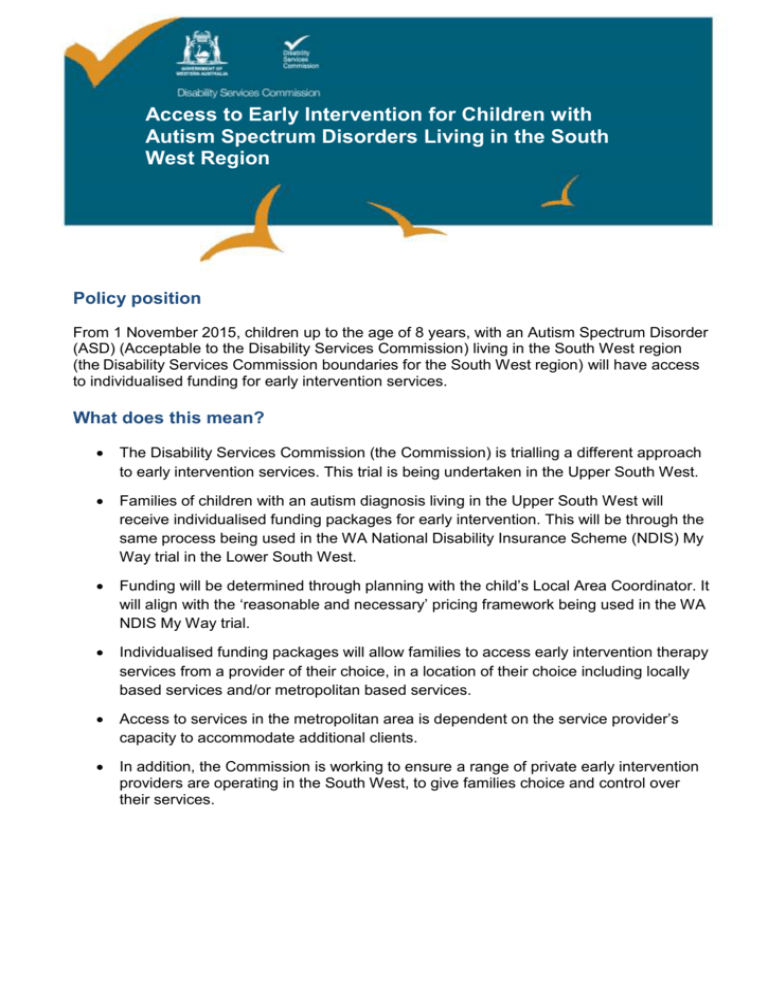
Access to Early Intervention for Children with Autism Spectrum Disorders Living in the South West Region Policy position From 1 November 2015, children up to the age of 8 years, with an Autism Spectrum Disorder (ASD) (Acceptable to the Disability Services Commission) living in the South West region (the Disability Services Commission boundaries for the South West region) will have access to individualised funding for early intervention services. What does this mean? The Disability Services Commission (the Commission) is trialling a different approach to early intervention services. This trial is being undertaken in the Upper South West. Families of children with an autism diagnosis living in the Upper South West will receive individualised funding packages for early intervention. This will be through the same process being used in the WA National Disability Insurance Scheme (NDIS) My Way trial in the Lower South West. Funding will be determined through planning with the child’s Local Area Coordinator. It will align with the ‘reasonable and necessary’ pricing framework being used in the WA NDIS My Way trial. Individualised funding packages will allow families to access early intervention therapy services from a provider of their choice, in a location of their choice including locally based services and/or metropolitan based services. Access to services in the metropolitan area is dependent on the service provider’s capacity to accommodate additional clients. In addition, the Commission is working to ensure a range of private early intervention providers are operating in the South West, to give families choice and control over their services. Why is the trial in the Upper South West? Early intervention services in the Upper South West have always been handled slightly differently to the rest of the State. o In the rest of the State, the Commission’s Country Resource and Consultancy Team supports the WA Country Health Service (WACHS) in the delivery of early intervention services. This is in addition to services delivered by the Commission’s Early Years Consultancy Team. o In the South West, this does not occur: WACHS provides early intervention services through its Regional Therapy Team alone, meaning the Country Resource and Consultancy Team has not been involved. Only psychology support has been provided by the Commission. Disability supports in WA are becoming more and more individualised and the Commission is seeking to give people with disability the most choice possible over their services and supports. This approach provides an opportunity to strengthen service provision in our State’s South West. o A certain critical mass of individuals seeking a service is needed for a specialised service to be sustainable for non-government providers. o By giving families in both the Lower South West (through WA NDIS My Way) and Upper South West (through this trial) the opportunity to plan for local early intervention services through a non-government provider, we help achieve that critical mass that results in a range of sustainable early intervention options for families in the South West. o Developing a strong local market, based on service demand, directly supports WA’s preparedness for broader roll out of an NDIS in the future. This approach will also give regional families seeking a program-based approach to intervention the option to combine their Commonwealth and State-based funding within the WA National Disability Insurance Scheme My Way early intervention funding bands, with a single, local provider for a more coordinated, comprehensive service. What if I live in a regional area but am not eligible for this trial? The Upper South West was specifically chosen for this because it has always had a slightly different model to the rest of the State. In the remainder of regional Western Australia, the Commission’s Country Resource and Consultancy Team supports WACHS to deliver early intervention services, in combination with the services delivered by the Commission’s Early Years Consultancy Team. This offers a full range of therapeutic supports.

